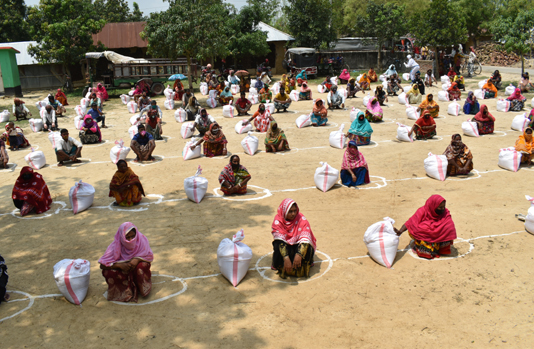RAJSHAHI, May 14, 2020 (BSS)- Some 20,000 poor and extreme poor families are being given food and hygiene support in order to enable them to fight the novel coronavirus (COVID-19) pandemic.
The households being given 20 kilograms of rice, five kilograms of potatoes, two kilograms of lentil and salt each, one kilogram of edible oil, suji and sugar each, three soaps, two face masks and some emergency medicines like paracetamol, vitamin C tablet each through maintaining social distancing and other security measures.
On behalf of NETZ Partnership for Development and Justice (NETZ), a non-profit organization registered in Germany and Bangladesh, the supports were given in the poverty pockets of Chapainawabganj, Naogaon, Gaibandha, Nilphamari, Panchgarh, Kustia, Rangpur, Dinajpur and Kurigram districts.
The distribution started on April 28 last and is expected to complete by May 30 next.
NETZ Programme Manager Md Moniruzzaman here told BSS the supports are being distributed in cooperation with the respective partner NGOs to respond to the Covid-19 and the support are expected to secure food intake of the recipient families for two to three weeks.
NETZ has been working in the areas focusing its support on income and food security for extremely poor people, primary education for children of extreme poor families and promotion of human rights through the partner NGOs.
Main thrust of the current support package is to enable them to avoid starvation and refrain themselves from forced sale of productive assets that they had received earlier as a part of livelihood development support initiated by NETZ.
Habibur Rahman Chowdhury, Country Director of NETZ Bangladesh Office, identically said many of the support receivers who are mainly agri-labourers have already borrowed money from informal sources and fallen to the trap of advanced labour sale in their locality.
He mentioned more humanitarian support will be required to secure their food intake to overcome the long term negative impacts of the ongoing troubled situation including shrinking income opportunities of the extreme poor vulnerable groups.



